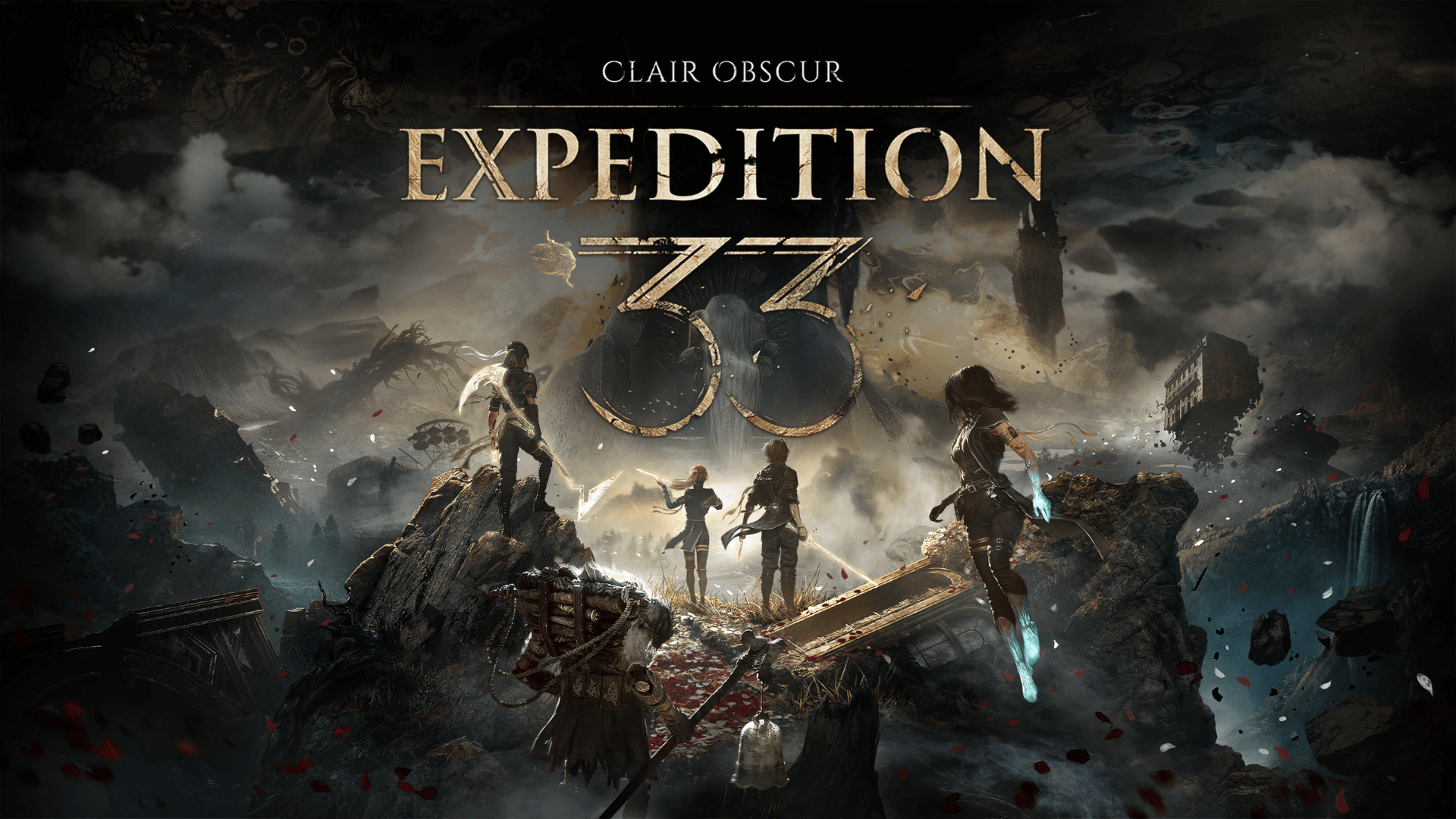Visions of Mana: A Gripping Exploration of Grief, Tradition, and Agency
Visions of Mana
Visions of Mana is a game that took me by surprise in many ways, and I’m convinced it’s one of the sleeper hits of 2024. Though
it hasn’t garnered widespread attention, this underrated gem weaves a compelling narrative exploring grief, agency, and personal
responsibility in a way that few games manage to do. After recently completing the game, I find myself reflecting on its deeper
themes, particularly how well it handles emotional topics like regret and the weight of tradition.
At first glance, Visions of Mana feels familiar, borrowing elements from classics like Tales of Symphonia and Final Fantasy X.
The central premise, which sees characters embarking on a pilgrimage where they must ultimately sacrifice themselves to sustain
their world, will certainly resonate with fans of those games. However, Visions of Mana sets itself apart by delving into the
emotional complexity of this tradition, questioning its necessity and exploring the characters’ internal struggles as they confront
their own destinies.
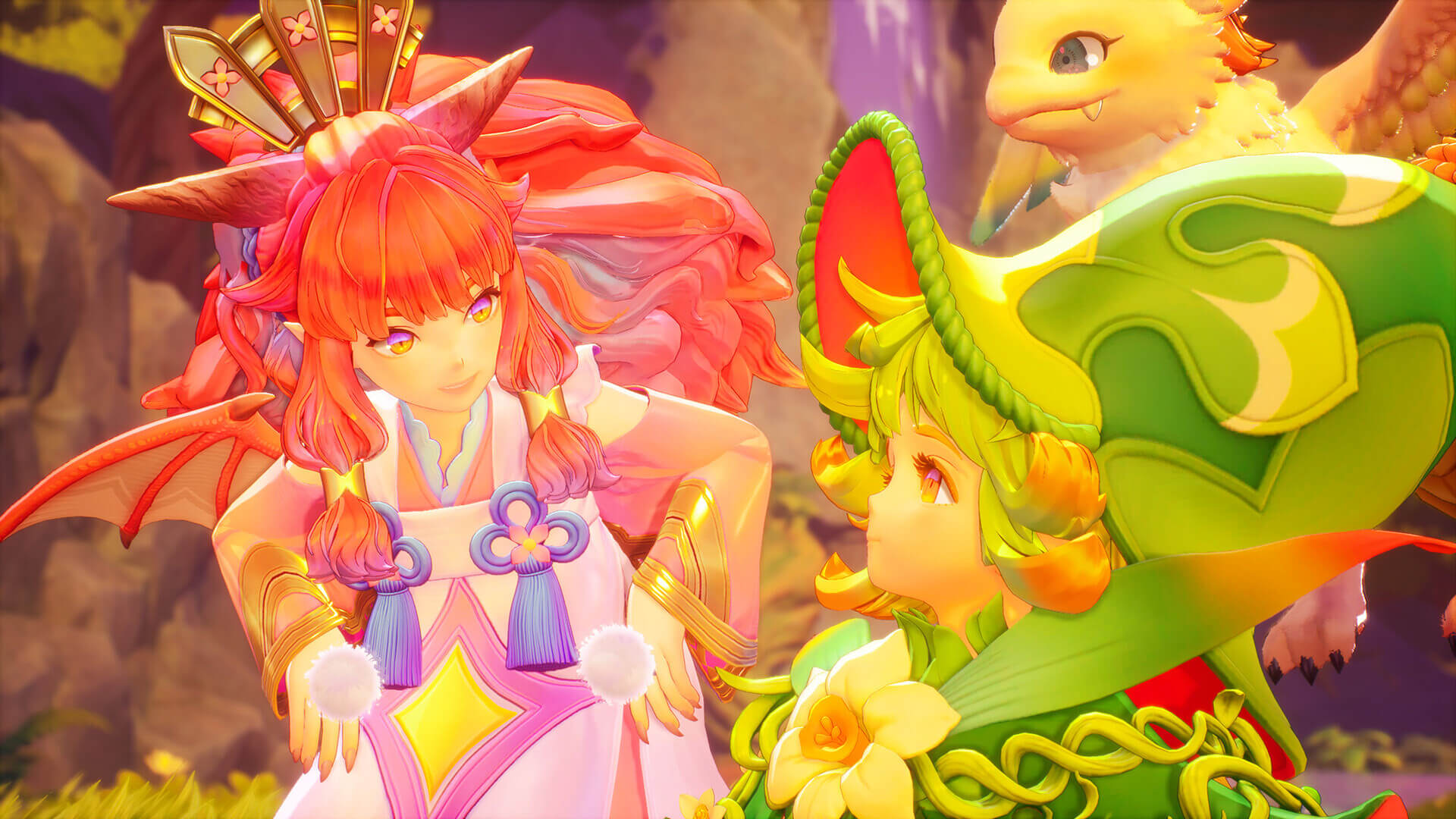
The Weight of Tradition
The game’s core plot revolves around the Alms, individuals appointed by a higher power - the Faerie and elementals - to sacrifice
themselves to maintain the balance of the world. This echoes familiar themes from other JRPGs, but what stands out in Visions
of Mana is the way it handles the characters’ gradual realization that this long-standing tradition may not be as noble as it
seems.
At the start of the pilgrimage, the characters view their task as an honor. Sacrificing oneself for the greater good is treated
as a prestigious calling, much like Yuna’s pilgrimage in Final Fantasy X to defeat Sin. However, as the characters journey through
the world, they begin to question the cycle they are trapped in - one that demands their lives as a temporary fix to a much larger
problem. This exploration of breaking free from tradition is where the game truly shines, showing how the characters wrestle with
their sense of agency and what it means to forge their own paths.
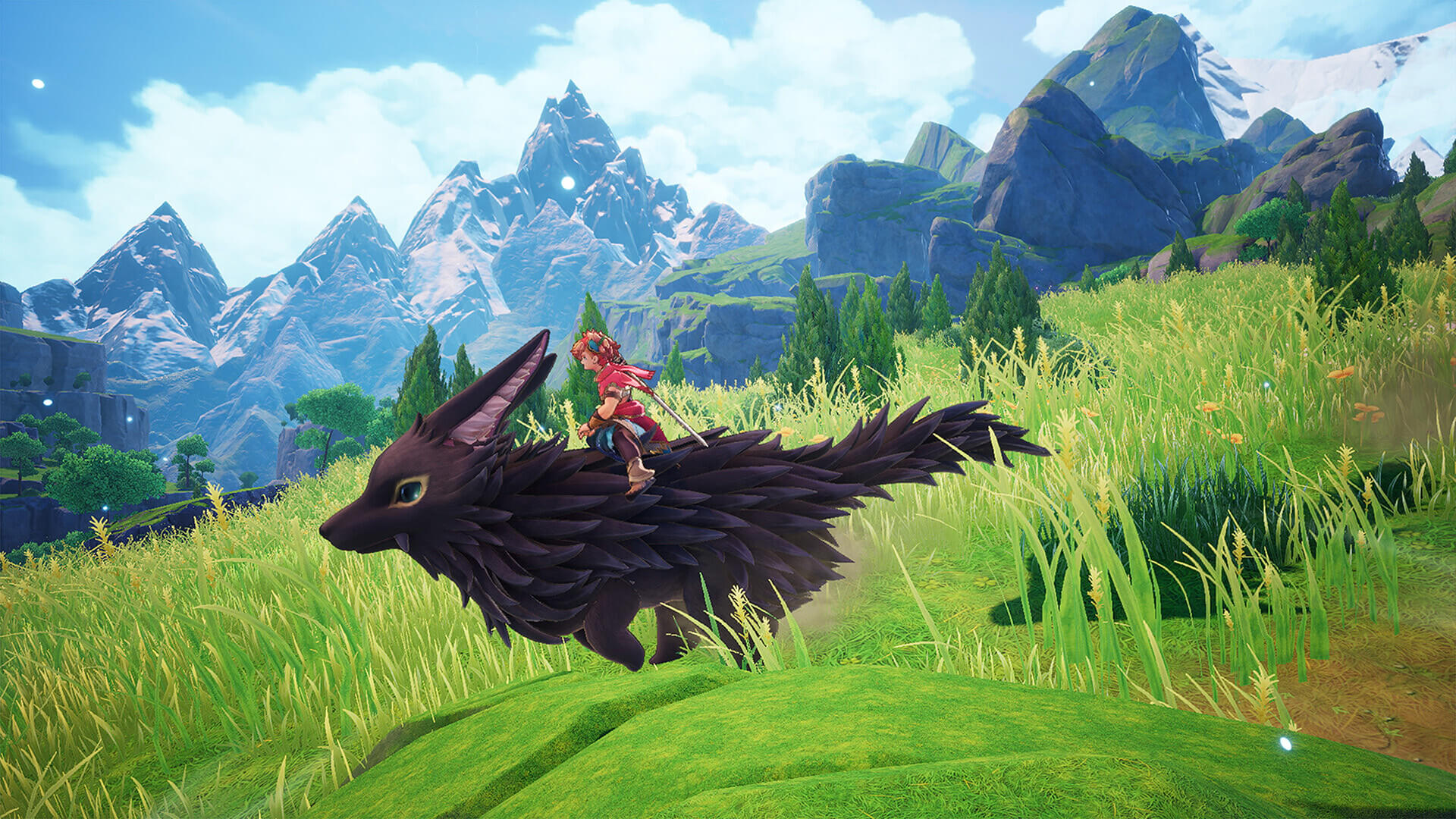
The Search for Agency
Agency is one of the strongest underlying themes in Visions of Mana. The characters’ internal struggles reflect their journey toward
self-realization, as they begin to ask whether following tradition is the right thing to do, or if it’s just the easiest path. The
sacrifice they are asked to make robs them of their futures, which weighs heavily on them as the story unfolds.
One of the standout moments is when the characters start to realize that their fate isn’t set in stone - that they have the power
to change the course of events. As they unravel the mysteries surrounding their pilgrimage, they learn that the sacrifice they
are expected to make may not be the only solution. The game does a fantastic job of exploring this inner conflict, with characters
struggling between duty and their desire for a life beyond the altar.
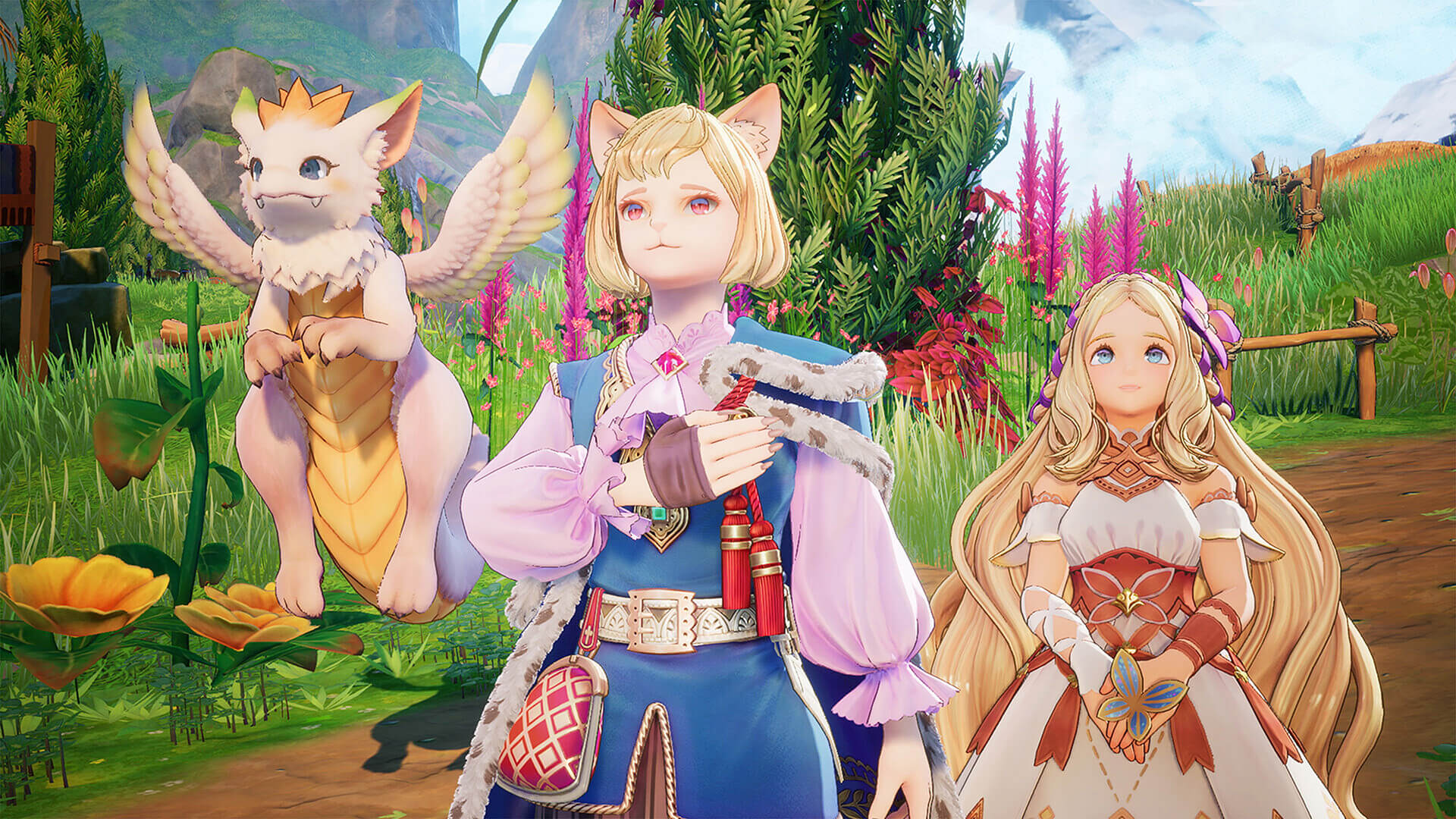
Grief as a Central Theme
Perhaps the most powerful theme in Visions of Mana is grief, and the game does not shy away from exploring its depths. Early on,
one of the key characters, Hena, dies in a sudden and tragic twist. Much like Aerith’s death in Final Fantasy VII, it’s an unexpected
moment that shifts the tone of the game dramatically.
What makes Hena’s death even more heartbreaking is that, just before her passing, she begins to express doubts about the pilgrimage
and contemplates finding another way to sustain the world without sacrificing herself. Her desire to live on is palpable, and her
untimely death makes it even more tragic, leaving the remaining characters, especially Val, grappling with feelings of guilt and loss.
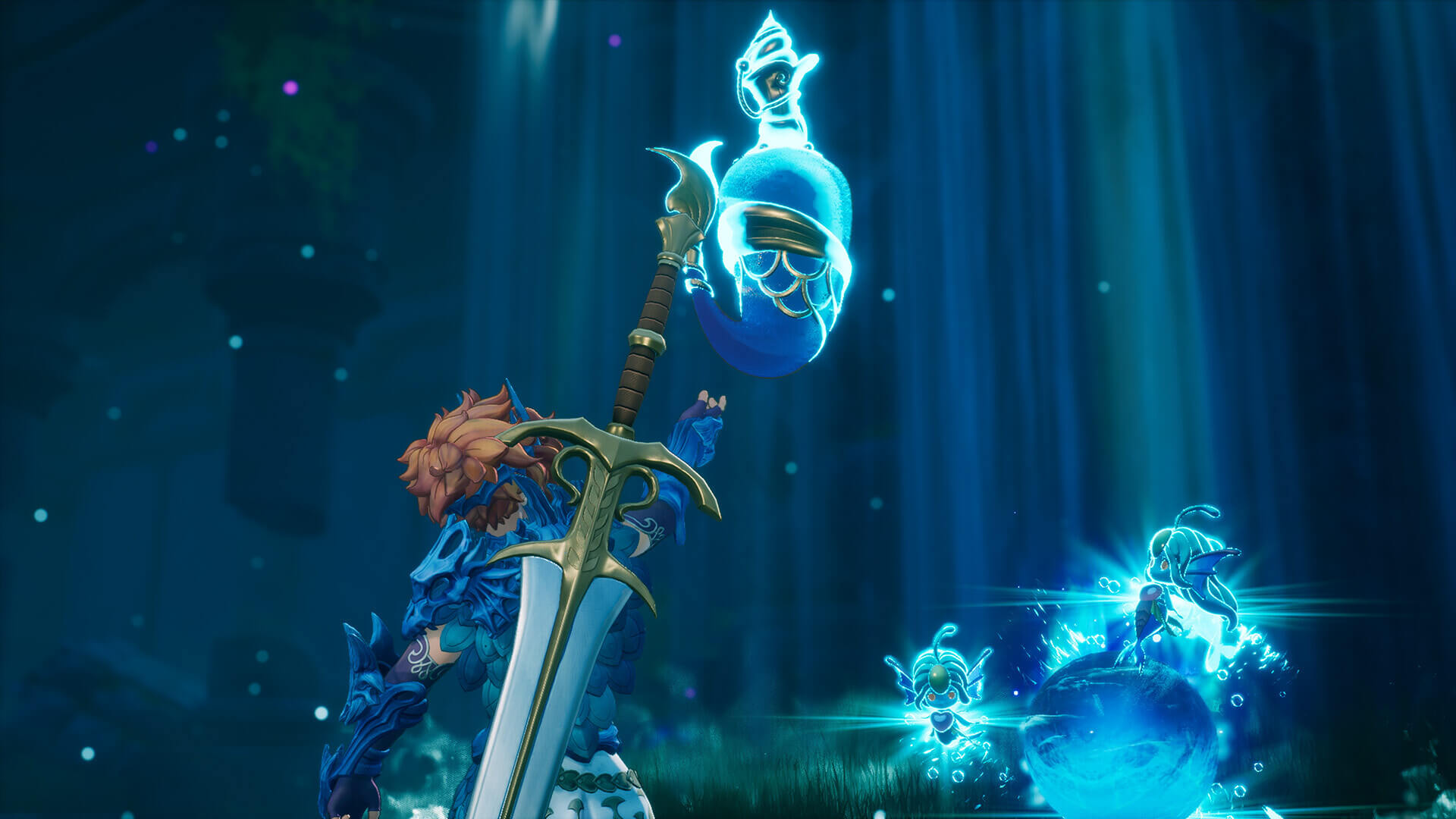
Val’s Journey: The Alm of Light and Growth Through Grief
Val's journey is a quintessential hero’s arc. But unlike many traditional stories, Val’s defining struggle isn’t a villain or external
force, but his own grief and uncertainty. Throughout his quest, Val grapples with the emotional weight of his losses and the uncertainty
that comes with it. As he navigates these hardships, he grows not only as a hero but as a person. His evolution is marked by moments of
introspection, and instead of allowing his grief to consume him, Val faces it head-on.
Val's progression eventually leads him to become the "Alm of Light," a symbolic transformation that reflects his emotional and
psychological triumph. He finds balance and clarity, choosing to channel his pain into something constructive. His journey through
grief is not easy, but it is a healthy and redemptive process that allows him to emerge stronger and more grounded.
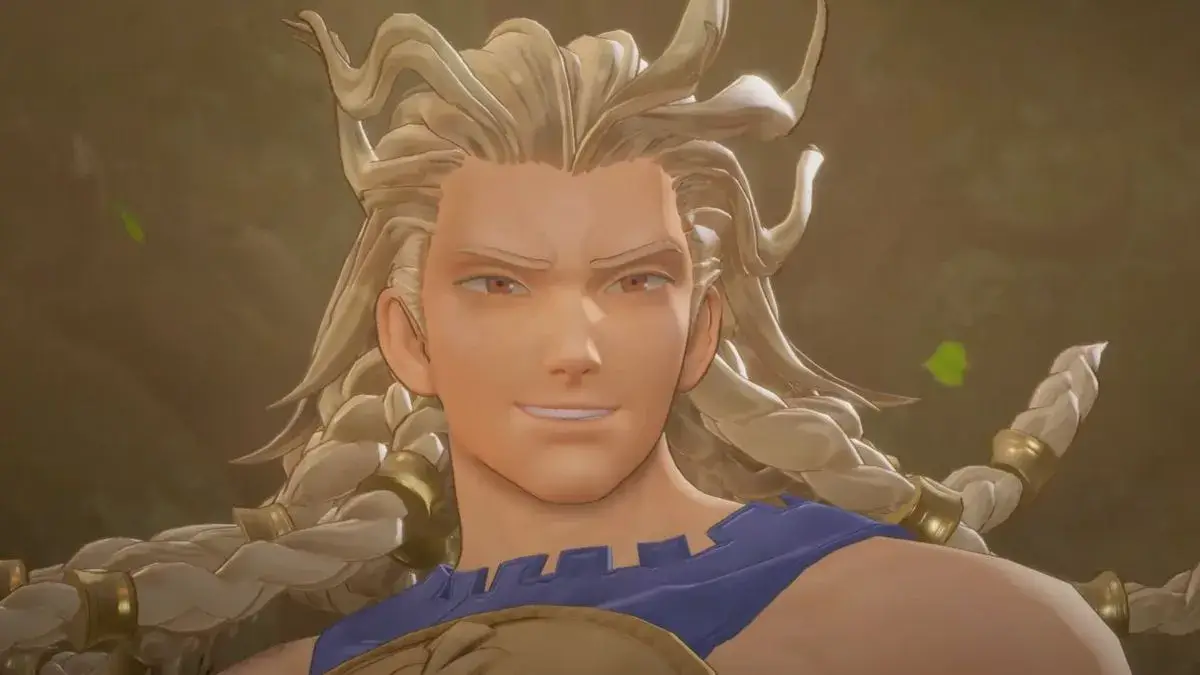
Daelophos’ Descent: Consumed by Power and Grief
On the opposite side of this emotional spectrum is Daelophos, the game’s central antagonist. Like Val, Daelophos is deeply affected
by personal loss. His identity, much like Val's, is shaped by an inability to protect the one person he loved. But rather than coming
to terms with his grief, Daelophos spirals out of control. His journey is one of revenge and madness, a path fueled by anger and a
desperate need to reclaim the sense of power and control he lost.
Daelophos seeks power at any cost, with his ultimate goal being to kill the Goddess of Mana and plunge the world into chaos. This
obsessive pursuit warps him both emotionally and physically. As Daelophos gains more power, his appearance becomes increasingly
demonic, reflecting his loss of humanity. His inner turmoil manifests visually, as his once-human form contorts into a monstrous
figure, symbolizing how his grief has consumed him entirely. The world itself begins to mirror his descent, as his thirst for
vengeance plunges it into disarray.
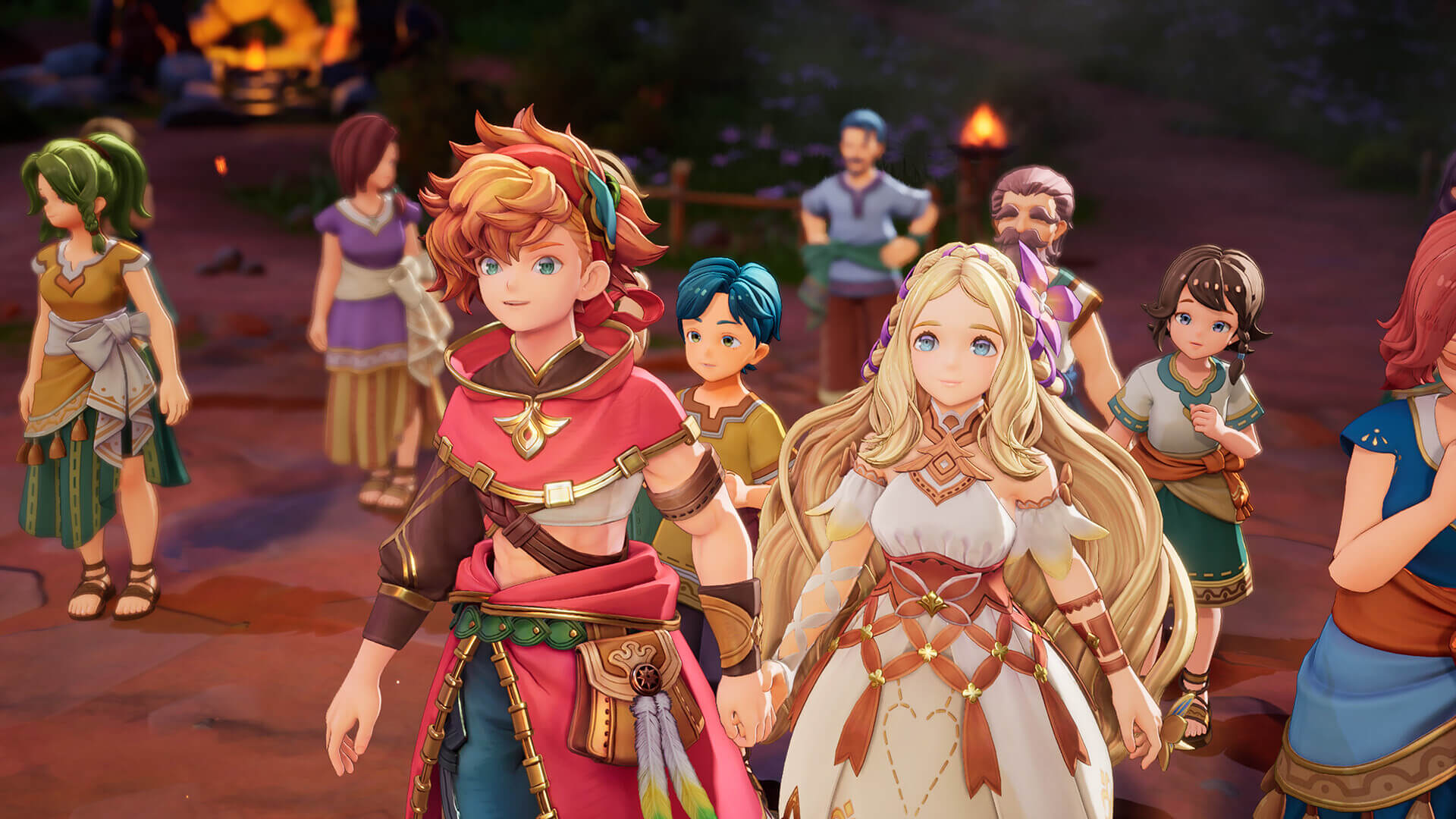
The Emotional Duality of Grief
The game excels at portraying the emotional and psychological consequences of grief, using Val and Daelophos as two sides of the
same coin. While Val’s journey is about acceptance, resilience, and growth, Daelophos’ story is one of destruction, both of himself
and the world around him. The contrast between the two highlights the different paths that grief can take someone down.
In many ways, Daelophos serves as a cautionary tale - his failure to confront his grief in a healthy way leads him down a path of ruin.
His ambition to gain power at any cost, even if it means losing his humanity, starkly contrasts with Val’s decision to face his pain
and rise above it. This duality is the core of the game’s narrative, driving home the message that while grief is inevitable, how we
choose to deal with it ultimately defines us.
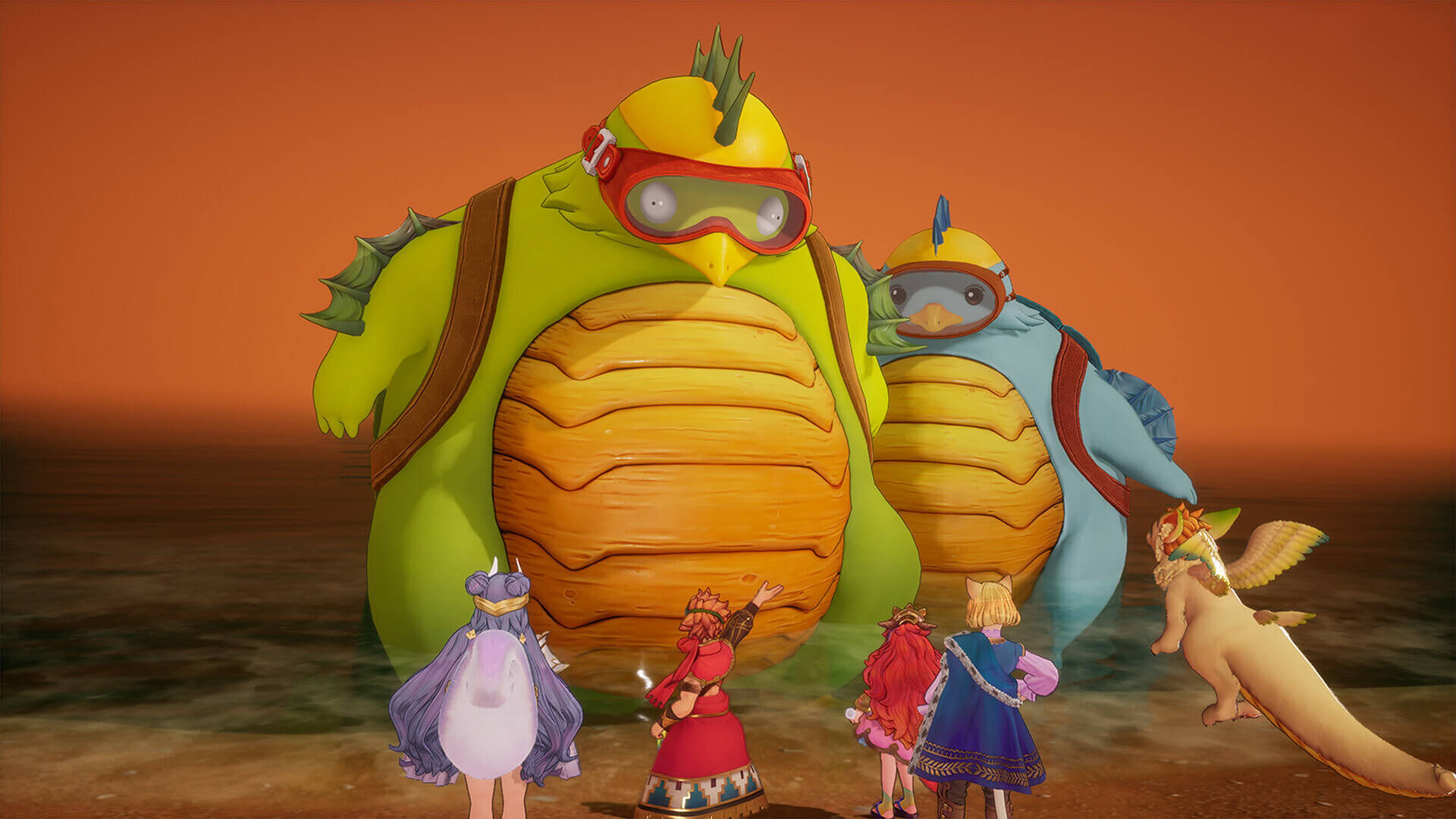
A Deeper Exploration of Heroism
Through these two characters, Visions of Mana doesn't just explore grief, but also what it means to be a hero. Val, while traditionally
heroic, becomes more than just a warrior or savior - he becomes a symbol of resilience in the face of overwhelming emotion. Daelophos,
on the other hand, represents the tragedy of a hero who falls from grace, someone who was once noble but allowed their sorrow to poison
their soul.
In this way, the game subtly deconstructs the idea of heroism itself. It shows that being a hero isn’t just about defeating external
enemies, but also conquering the internal battles we all face. Val and Daelophos are both deeply flawed, but it’s their responses to
their own vulnerabilities that determine their ultimate fates.
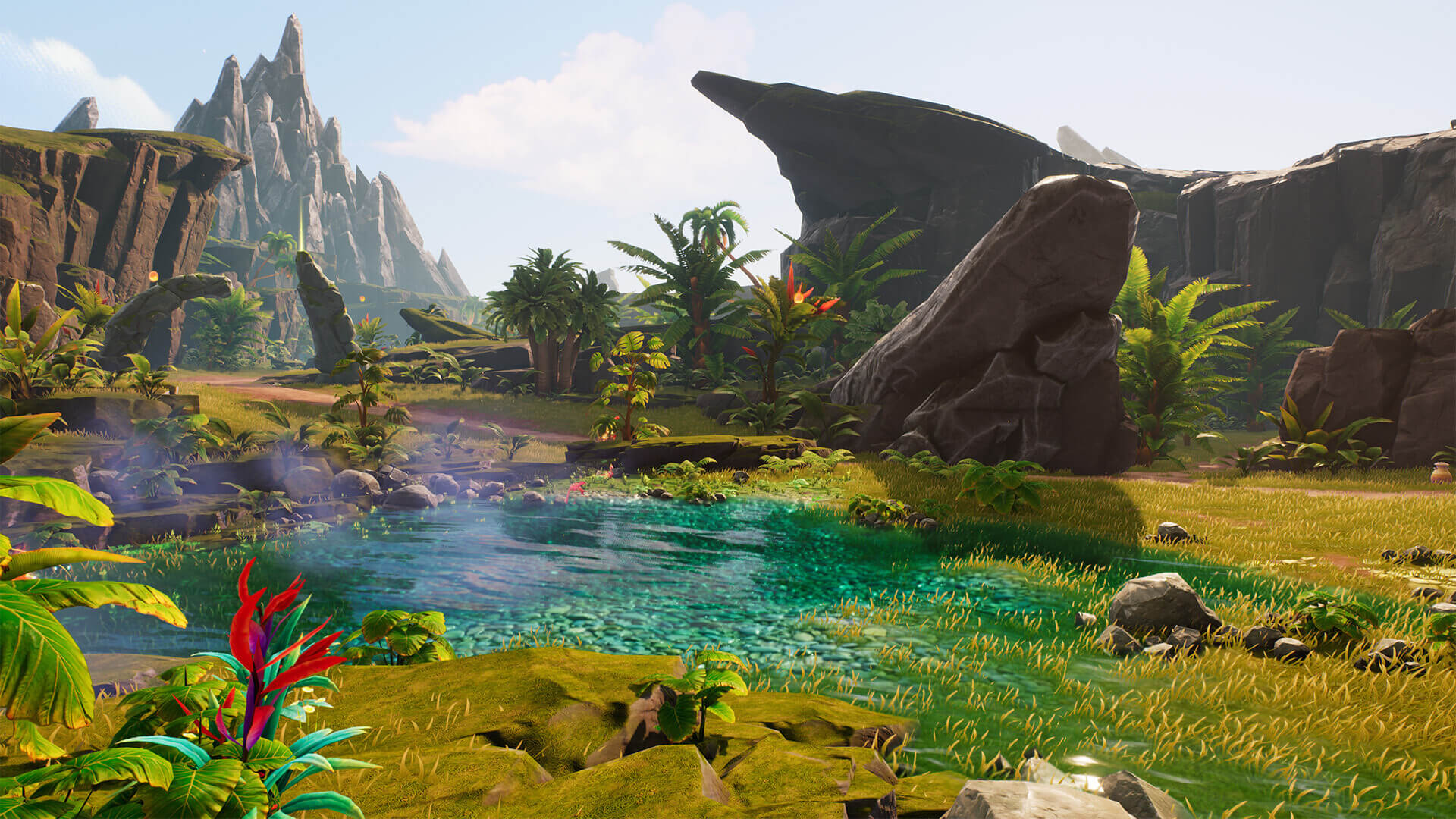
Conclusion
Visions of Mana tells a compelling story of grief, loss, and power, and the impact these forces can have on individuals and the
world around them. The contrast between Val and Daelophos offers a thoughtful and poignant exploration of how different people
handle similar traumas - one leading to growth and redemption, the other to madness and ruin.
Through this emotional duality, the game challenges players to think about the nature of grief, heroism, and how personal struggles
can shape the course of not just one’s life, but the fate of an entire world.
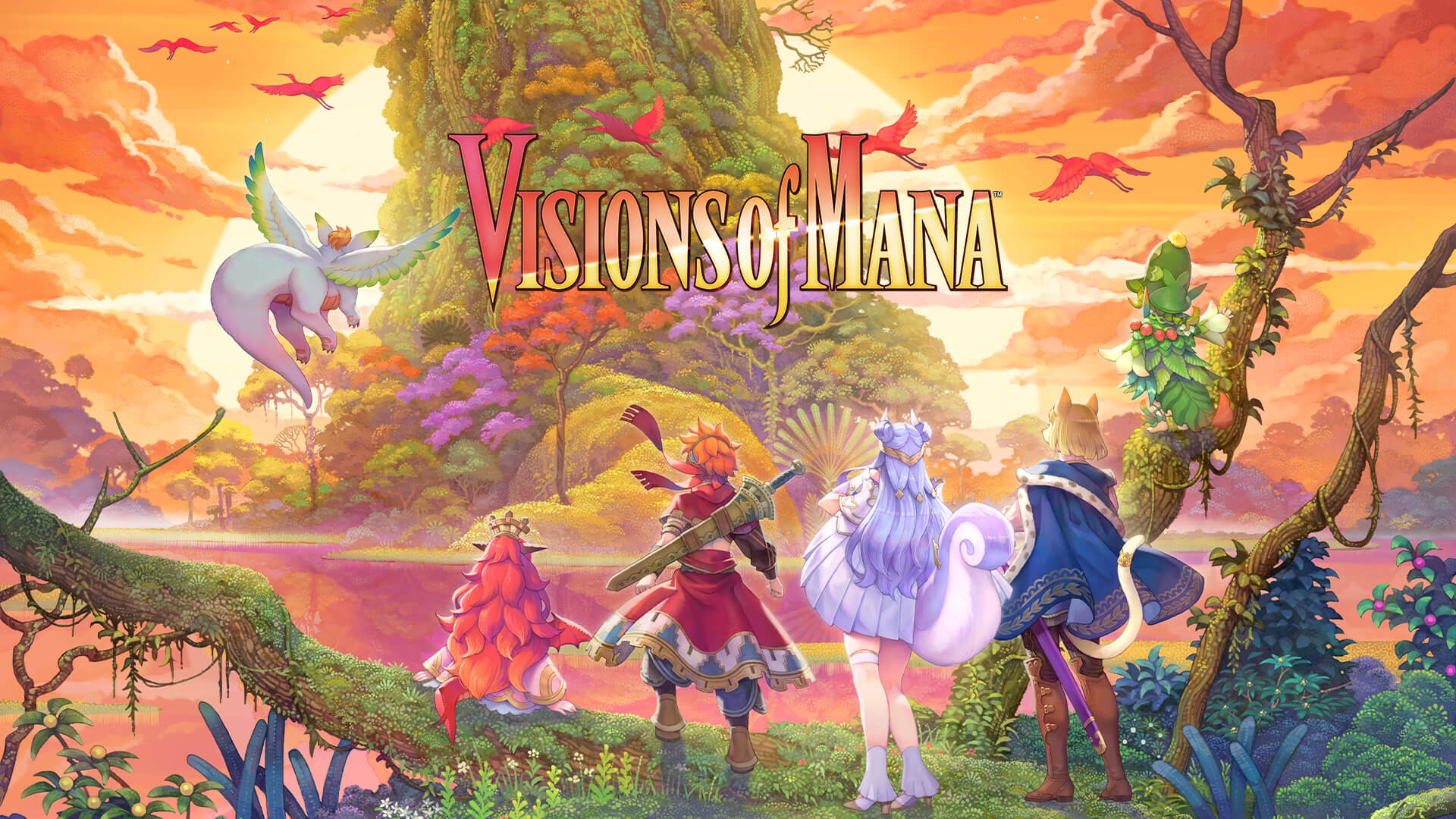
Visit our friends at Rushdown Radio for more comprehensive articles about RPG's and thorough fighting games coverarge.
